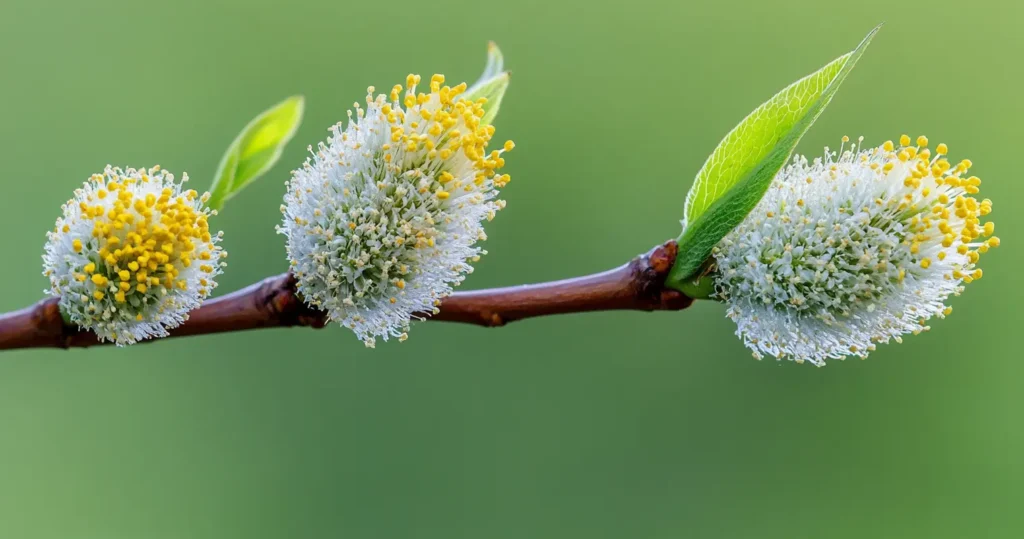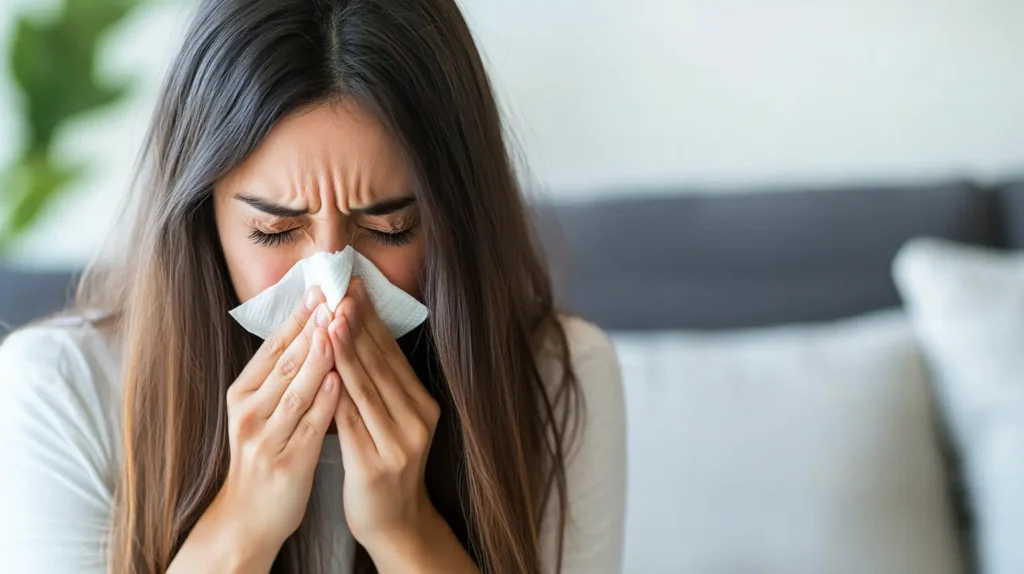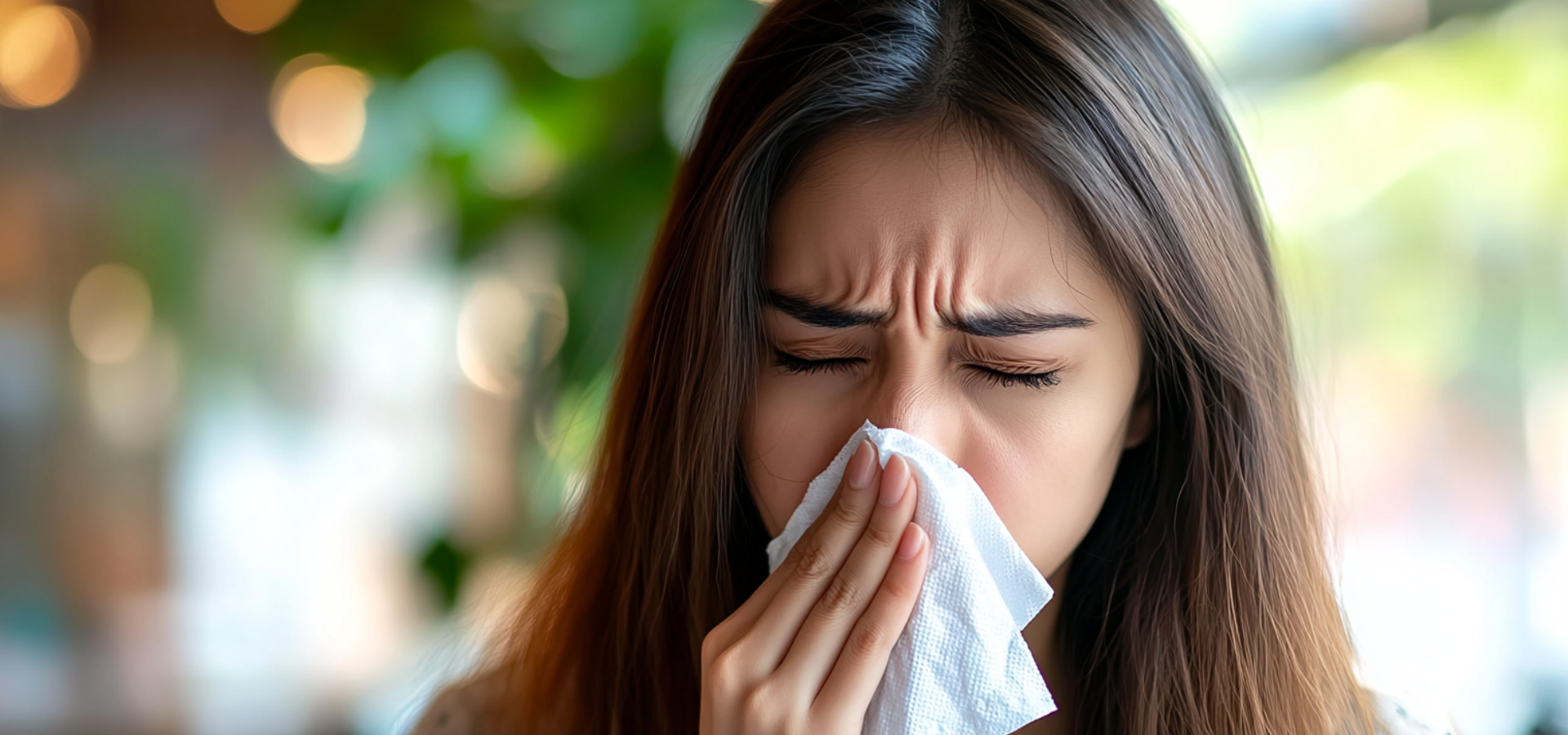
Here’s Why Your Spring Allergies Get Worse Every Year
Spring allergies, marked by sneezing, itchy eyes, and congestion, seem to worsen yearly and affect millions worldwide. These symptoms, often caused by increased pollen levels, can significantly disrupt daily activities and reduce quality of life.
Understanding the underlying factors contributing to the intensifying allergy seasons is crucial for developing effective strategies to combat these symptoms. We explore the reasons behind worsening allergies, diving into the impact of climate change and other environmental factors.
Additionally, we provide practical tips on managing and preventing symptoms effectively, from lifestyle adjustments to medical interventions. By staying informed and proactive, you can minimize the discomfort of spring allergies and enjoy a healthier, more comfortable season.
Why Allergy Seasons are Getting Worse
Due to climate change, allergy seasons are becoming more intense and prolonged. Warmer temperatures and higher CO2 in the air lead to longer growing seasons for plants. This produces more pollen over extended periods, contributing to severe allergy symptoms.
Additionally, urbanization and air pollution are contributing factors. Pollutants in the air can interact with pollen, making it more allergenic and worsening the effects of exposure. This combination of environmental changes exacerbates the overall impact on individuals suffering from allergies.
The Role of Pollen in Spring Allergies

Pollen, a fine powder created by plants for reproduction, is a significant trigger for spring allergies. When inhaled, pollen can cause the immune system to overreact, releasing histamines and other chemicals. This immune response results in nasal congestion, itchy eyes, and coughing. Higher pollen concentrations in the air mean that even those with mild allergies may experience more severe reactions.
Different types of pollen, such as tree pollen, grass pollen, and weed pollen, have varying effects on individuals. The timing and duration of pollen release differ among plant species, leading to overlapping allergy seasons and prolonged exposure. Understanding the specific types of pollen that trigger your symptoms can help manage and mitigate their impact.
How Bad Allergy Seasons Affect Your Health
Common symptoms like sneezing, runny nose, and itchy eyes can lead to discomfort and reduced productivity. For some, allergies can exacerbate conditions such as asthma, leading to more frequent asthma attacks and respiratory issues. Chronic exposure to high pollen levels can also contribute to fatigue and difficulty sleeping, further affecting overall well-being.
Persistent allergy symptoms can lead to complications such as sinus infections, ear infections, and worsening of other respiratory conditions. The constant discomfort and irritation can also affect mental health, causing stress and anxiety. Recognizing the broader impact of allergies on overall health emphasizes the importance of effective management and prevention strategies.
How You’re Worsening Your Spring Allergies

Using the Wrong Air Filter
Using an air filter that does not effectively capture pollen and other allergens can worsen indoor air quality. To reduce allergens in your home, ensure you use a high-efficiency particulate air (HEPA) filter. Regularly changing and maintaining your air filter is also crucial to ensure it captures airborne particles effectively.
Allowing Pets to Sleep in Your Bed
Pets can carry pollen and other allergens in their fur. Letting them sleep in your bed can transfer these allergens to your sleeping environment, worsening your symptoms. Establishing a pet-free zone in your bedroom can help minimize exposure to allergens and improve sleep quality.
Spending Time Outdoors on High-Pollen Days
Engaging in outdoor activities when there are high pollen levels increases your exposure to allergens. Check local pollen forecasts and stay indoors on days with high pollen counts. Wearing sunglasses and a hat can help lower pollen contact with your eyes and hair if you need to be outside.
Hanging Clothes Outside to Dry
Drying clothes outdoors can cause pollen to stick to the fabric, bringing allergens into your home. Opt for using a clothes dryer instead. If you prefer air drying, consider using an indoor drying rack to prevent pollen from settling on your clothes.
Skipping Your Evening Shower
Showering before bed helps remove pollen from your hair and skin, preventing it from irritating you throughout the night. Skipping this step can lead to prolonged exposure to allergens. Additionally, washing your face and rinsing your nasal passages can help remove pollen and reduce symptoms.
Putting off Spring Cleaning
Delaying spring cleaning allows dust and pollen to accumulate in your home. Regular cleaning can help reduce indoor allergens. Pay special attention to areas where pollen and dust can collect, such as carpets, upholstery, and bedding.
Starting Your Medications Too Late
Take allergy medications before the season starts to build immunity and reduce symptoms. Waiting until symptoms appear can make it harder to control them. Consult with a healthcare provider at Frontier Allergy to develop a pre-season allergy management plan that includes appropriate medications and preventive measures.
The Importance of Allergy Management and Prevention
Effective allergy management and prevention are crucial for reducing symptoms and improving quality of life. Here are some tips:
- Monitor Pollen Counts: Stay informed about local pollen levels and limit outdoor activities during high pollen days. Use apps and websites to get real-time updates and plan your activities accordingly.
- Shower and Change Clothes: Shower and change clothes to remove pollen after spending time outdoors. This simple step can significantly reduce indoor allergen levels.
- Start Medications Early: Begin taking allergy medications before the season starts to build resistance against allergens.
- Keep Windows Closed: During peak pollen times, keep the windows and doors closed to prevent pollen from entering your home.
When Should You See A Doctor for Allergy Symptoms?
While many people can manage allergy symptoms with over-the-counter medications and lifestyle changes, some may need professional help. Consult a doctor if:
- Symptoms are Severe: If you experience difficulty breathing, wheezing, or chest tightness, seek medical attention immediately. These could be signs of a more severe condition like asthma or anaphylaxis.
- Persistent Symptoms: If symptoms persist despite medications and lifestyle changes, consult an allergist for specialized care. They can conduct tests to find out specific allergens and recommend more targeted treatments.
- Preventive Measures: If you have a history of severe allergies or asthma, see a doctor before the allergy season for a comprehensive management plan. Early intervention can help prevent severe symptoms and improve your overall health.
Don’t let spring allergies take control of your life!
Stay informed, take preventive measures, and consult with healthcare providers to effectively manage your symptoms and enjoy a healthier, more comfortable spring season. By being proactive and adopting effective strategies, you can lower the impact of allergies and make the most of the beautiful spring weather.

Written/Reviewed by: Dr. Neha Reshamwala
NPI number: 1780874578
Page last reviewed: 02/25/2025


 All blog posts
All blog posts




